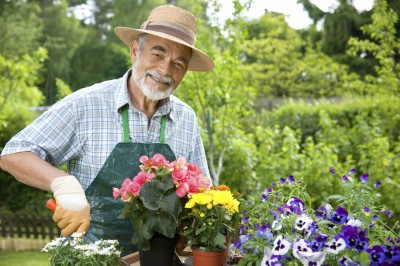






So you say you want to become a master gardener? What is a master gardener and what steps must be taken to achieve that goal? Extension services in your locality are a good place to start gathering information. Master gardening programs are community and volunteer based horticultural education services. Becoming a master gardener allows you to spread your knowledge, learn more about gardening and service your municipality.
Master garden training is a lengthy process with annually required retraining hours. It also involves up to 50 volunteer hours per year, but if you like helping others and have a passion for gardening, becoming a master gardener may be for you. Extension services in your area are government run organizations that train master gardeners and provide opportunities to serve.
A master gardener is a citizen that is interested in gardening and can fulfill the training and volunteer hours necessary. Requirements vary by county and state, and the course is tailored for that specific region. You will receive special education on the soils in your area, the types of native plants, insect and disease issues, basic botany and other information pertinent to your gardening zone.
The educational opportunity to learn specifics about where you garden will not only help you become a better gardener but is then passed along to the general public in lectures, clinics and through newsletters.
The first step to becoming a master gardener is to fill out an application. You can get this online at your County Extension offices website. Once you have your application in, information will be sent to you on how to become a master gardener and to let you know when training begins.
Training is typically in the winter months of January through March. This allows the new master gardener to be ready for the volunteer service requirements at the start of the gardening season. Volunteer hours vary by county but are typically 50 hours the first year and 20 hours in subsequent years.
Once you have completed approximately 30 hours of training, the opportunities to serve are nearly endless. Participation in scheduled gardening clinics at schools, garden and community centers and plant fairs are a few possibilities.
Additionally, you can meet seniors, students and other gardening enthusiasts to exchange information and hone your skills. You may also be asked to write articles and participate in publications.
Annually, you also get the opportunity to get more training and glean new information to share. Master gardener training is a chance to give back to your community and learn more about your favorite hobby — gardening.
What You Ought To Learn About Sending Flowers Online
Learn About What You Can Do For Driveway Paving
What Is Phototoxicity: Information About Phototoxicity In Plants
What Is Clubroot: Learn About Clubroot Treatment And Control
What Is Trench Composting: Learn About Creating Compost In A Pit
What Is Trench Composting: Learn About Creating Compost In A Pit
What should I do about my lawn
Roses: What About Rose Gardening?
What You Ought To Learn About Landscape Gardening?
Watering Tomatoes - What Every Gardener Should Know About Watering Tomatoes
What Is Cool Grass: Learn About Cool Season Turf Grasses And Ornamentals
What Are Hydrogels: Learn About Water Crystals In Potting Soil
Copyright © www.100flowers.win Botanic Garden All Rights Reserved